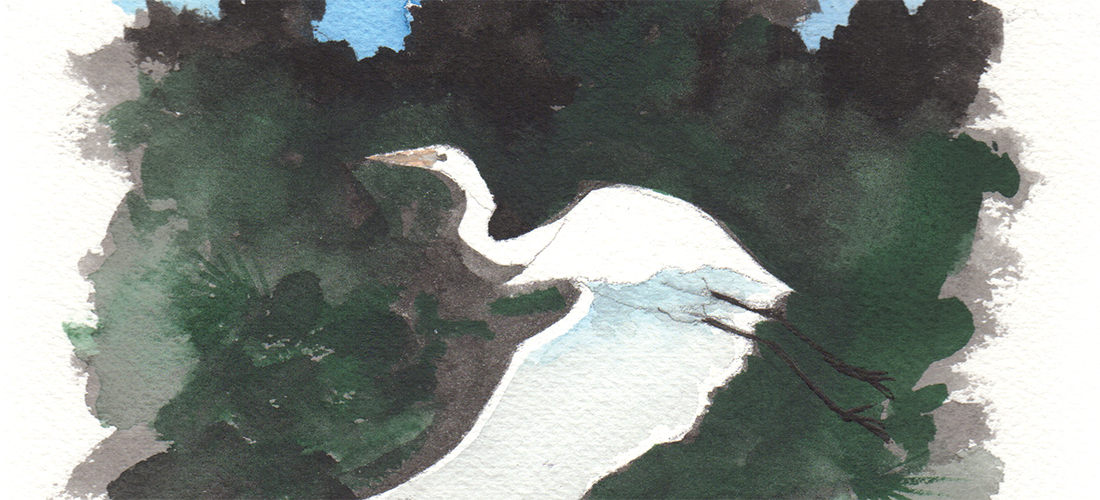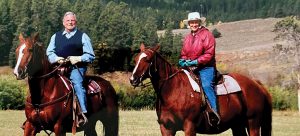
The Happy Hour
On the balcony, overlooking the water’s edge, hope and friendship grow
By Cynthia Adams
On recent coastal trips, we’ve noticed a complete turnover of residents in our community, which is populated by an older demographic.
Among first friends here, Chuck and Judy were our “balcony buddies.” We loved to sit on our adjacent balcony, batting away no-see-ums and hoping a dolphin might breach in the “Ditch,” — Chuck’s name for the Intracoastal Waterway.
We chatted across the small distance, swapping stories and admiring the blooms that would spill from Chuck’s planters and pots. Chuck used to own a nursery. Whereas he was understated and reserved, Judy was spunky, joyful — a vivid petunia. Yet her memory was slipping.
So Chuck had become her memory-keeper.
Last year, as the plants on their balcony began to vanish, we realized we hadn’t seen the couple for months.
We sent a message to their son, who told us that Judy was in a facility, and that Chuck was usually there with her.
Not long after this, we witnessed Chuck total his sedan while parking, a lapse in judgment that shook him to the core. I kept an arm around his shoulder as we waited for the medics. Deeply embarrassed by the accident and his injuries, Chuck could barely speak.
“Judy,” he whispered tremulously, “has dementia.”
His body began to shake.
“I don’t want to lose my license,” he added. “I go to visit Judy, you see.”
Soon after his accident, Chuck suffered additional issues requiring long term care.
We were thrilled to discover he was back home by summer, even riding out hurricane Isaias with a shrug. He made daily rounds at the condo, using a walker to tread the walkways, determined to regain his strength.
And one day, he reappeared on his balcony with a glass of wine, silently staring at the water as a lonely sailboat clipped by.
I called over, suggesting we grab our wine glasses and share a COVID-era happy hour.
Chuck shook himself out of a reverie and nodded. The wind whipped our voices.
His, which had grown fainter, was sometimes indiscernible.
No matter. We raised our glasses, and I managed an awkward toast:
“To friends we will always remember and times we’d like to forget.”
Chuck offered a wan smile, and we talked about sundry things as the sun dropped, the muddled corals on the horizon growing fantastical over the marshlands. A white egret grew visible in the transformative contrast of darkness and light.
He talked about Judy and his intro to FaceTime. We commented on the new set of wheels in his parking space. “An old man’s car,” Chuck said with a grin. But at least he can drive to see Judy once a week. During the pandemic, he told us, they’re only allowed half-hour visits.
As we chatted over the wind, dusk falling, the white egret grew nearly impossible to follow in the marsh grasses.
Tomorrow again?
At this, Chuck smiled broadly.
The next afternoon, despite Chuck’s hardships, a single green plant appeared on his wrought iron table. Would more follow? I wondered, draining my glass.
With flickering hopefulness, I scanned the water’s edge as the light dimmed, searching for a talisman in the darkening space. The egret, always alone, would no doubt reappear. OH
Cynthia Adams is a contributing editor to O.Henry.
Illustration By Harry Blair





